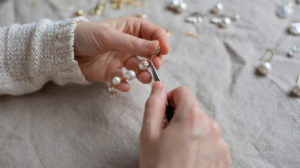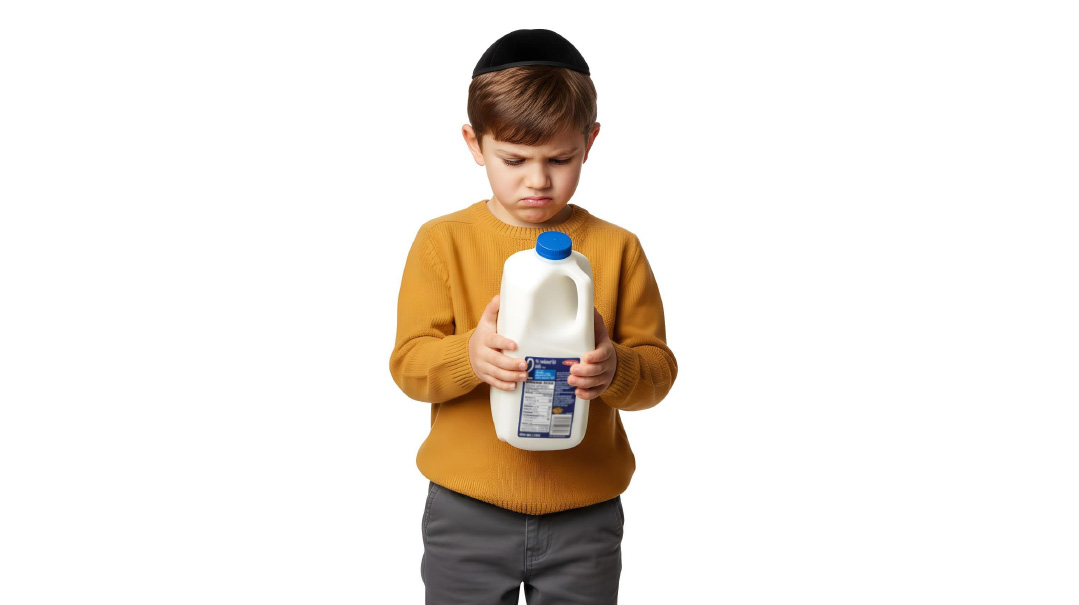Forever Special Children
| August 3, 2021Her diagnosis was a blow. And 18 years later, she’s still a child

I stand at the doorway watching Chaviva. She’s off to the side, singing to her own beat. She then gravitates toward the windows, where she can see the room’s bright colors, and the tables and chairs, reflected in the window pane.
She has her favorite purple Velcro watch around her wrist. Not that she can tell the time, but so she can feel the resistance of the hooks when she pulls the bands apart, can scratch herself with its rough black edges.
She’s wearing her comfortable T-shirt and skirt, the one that I’ve already replaced twice with an identical one, since it has no labels, and is sewn without extra fabric at the seam. From the way she flits back and forth, looking at the reflection in the windows, occasionally squealing in delight, I can see she is relaxed.
I’d never expected her to look this way as an adult. Honestly, I’d never really thought about special needs adults until she turned 18 last year. She was always little to me, and with her development so delayed, I just viewed her as a child.
Which in essence she still is.
Except that she isn’t.
I watch as the performers enter, with music, and move toward the center of the group. Everyone can see as they do tricks, acrobatics, bicycle stunts. Chaviva’s oblivious to the show, barely aware of the social significance of their fame, and I wonder why I thought to bring her.
But she’s calm, and I watch the show, more interested in the crowd than the performers. I observe the other children with special-needs as they watch the show, are enthralled by the tricks that even my nine-year-old Yaakov would find uninspiring. I watch the staff who attend the show with their clients, and I’m impressed with the care and dignity they afford them.
I’m distracted by my own thoughts as I keep an eye on Chaviva from afar. Thoughts of her as a baby, the devastation of her diagnosis. The endless denial that accompanied that diagnosis. My unfailing positivity, a mask for the insecurity I felt. How I’d always thought of her as so smart and savvy, when her limitations were more readily apparent to her teachers, who’d seen this before and done this before.
I think of the dead-end path we followed, believing that Chaviva could articulate her conflicting emotions in complex sentences. The hope it injected in us gave us life, allowed us to breathe more freely — Chaviva had the capacity to feel, think, to express! But then we were on one side, and most of civilized life stood on the other, with no bridge to enable us to work together and help her succeed.
I sigh, as the show nears its end. Chaviva is still at the back window, flitting from one spot to another, watching the reflection of the light beams at a particular angle, and then shifting again when she moves slightly this way or that.
I think of today, of the day program she attends, of the sadness that lingers, since she’ll never be independent. She’ll never be what I’d dreamed, hoped, she could be.
But I’ve learned, through difficult experiences, that it doesn’t always happen the way we want. Even if we truly desire, truly daven, and hope and plead for things to change.
And I’ve learned that it’s okay to be sad and mourn the reality of life with a child with special needs.
I watch as the performers throw collectibles to the crowd at the end of the show. I laugh aloud, as these collectible items were the fad last year. The performers have extras, I assume, and they make this crowd happy. Too happy.
I watch as Breindy, who was in Chaviva’s class all through the years, smiles with delight as she sees the collectibles strewn about. She’s two years older than Chaviva, which makes her roughly 20 years old. With the glee of a three-year-old who finds a penny on the floor and rushes to show his mother his windfall, she makes her way to the middle of the stage, her unsteady gait unhindered by her desire to collect the coveted trinkets lying on the floor.
I stand at the door and cry silent tears.
Tears for the children with special needs who live in a complex world.
Tears for the journey, the hardships, the pain, the process toward acceptance that some of us may never reach.
And I cry for myself, for all the mothers of special needs children, for despite endless efforts on their behalf, even as adults, they remain special needs children.
(Originally featured in Family First, Issue 754)
Oops! We could not locate your form.













